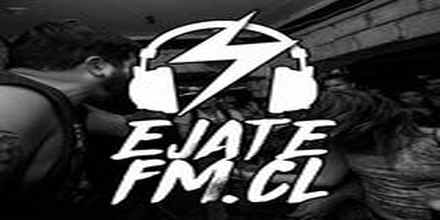Punk rock is a raw, energetic, and rebellious music genre that emerged in the mid-1970s, primarily in the United States and the United Kingdom. It is characterized by its fast tempos, distorted guitars, simple chord structures, and aggressive vocals. Punk music often addresses social and political issues, challenging authority and advocating for individual freedom and expression.
The origins of punk can be traced back to various influences, including garage rock, proto-punk bands like The Stooges and The New York Dolls, and the early work of artists such as The Velvet Underground. However, it was the late 1970s that saw the genre explode into mainstream consciousness with bands like the Ramones, Sex Pistols, and The Clash becoming iconic figures.
The Ramones, often referred to as the "first punk rock band," were instrumental in defining the genre's sound and aesthetic. Their debut album, released in 1976, featured short, fast-paced songs with simple lyrics that captured the raw energy and frustration of youth culture. The Sex Pistols, led by the controversial Johnny Rotten, became notorious for their provocative behavior and anti-establishment lyrics, epitomized by their anthem "God Save the Queen."
The Clash, on the other hand, expanded the punk rock template with more complex song structures and politically charged lyrics. Their dual-guitar attack and reggae influences set them apart from many of their contemporaries, making them one of the most influential bands in the genre's history.
Punk rock quickly spread beyond its initial epicenters, giving rise to various sub-genres and local scenes. In the United States, cities like Los Angeles, San Francisco, and Washington D.C. developed their own unique punk cultures. The hardcore punk movement, which emerged in the early 1980s, was characterized by even faster tempos, heavier guitars, and more aggressive vocals. Bands like Black Flag, Minor Threat, and Bad Brains were at the forefront of this movement.
In the UK, the anarcho-punk scene, led by bands like Crass and The Exploited, focused on political activism and DIY ethics. This scene emphasized collective ownership of venues, self-released records, and a strong anti-consumerist stance. Meanwhile, in Australia, bands like The Saints and Radio Birdman contributed to the global punk rock landscape with their distinctive sounds.
The visual aesthetics of punk rock are as iconic as its music. Leather jackets, ripped jeans, band t-shirts, and provocative slogans on clothing became staples of the punk fashion style. Mohawks, spiked hair, and colorful dyes were common hairstyles, reflecting the rebellious spirit of the genre.
Punk rock's influence extends far beyond music. It has had a significant impact on art, literature, film, and fashion. The DIY ethos of punk encouraged a generation to create their own media, leading to an explosion of zines, independent record labels, and underground press. This grassroots approach democratized the creative process, allowing anyone with a passion and some basic tools to express themselves.
The lyrics of punk rock often tackle issues such as social inequality, political corruption, and personal struggles. Songs like "London Calling" by The Clash and "Anarchy in the U.K." by the Sex Pistols became anthems for disaffected youth, giving voice to their frustrations and desires for change.
Despite its rebellious roots, punk rock has also been subject to commercialization and mainstream acceptance. Major record labels signed punk bands, and punk fashion became a trend in high street stores. This commercialization led to debates within the punk community about authenticity and the dilution of the genre's original spirit.
Throughout the 1980s and 1990s, punk rock continued to evolve, giving birth to sub-genres like pop-punk, which blended punk's energy with melodic hooks and catchy choruses. Bands like Green Day, Blink-182, and The Offspring achieved massive commercial success, bringing punk rock to a wider audience.
In the 2000s and beyond, punk rock has remained a vital and influential force in music. New generations of bands continue to draw inspiration from the genre's origins, while also pushing its boundaries in new directions. The internet and social media have made it easier than ever for punk musicians to connect with audiences and share their music globally.
Punk rock is more than just a musical style; it is a cultural movement that has inspired countless individuals to challenge authority, express themselves freely, and create communities based on shared values of independence and rebellion. Its enduring legacy can be seen in the continued popularity of punk bands, the influence of its aesthetics on contemporary fashion, and the ongoing relevance of its political messages.
From its roots in the gritty streets of New York City and London to its global impact today, punk rock remains a powerful and transformative force in music and culture.
 555
Punk
555
Punk REAL PUNK RADIOREAL PUNK RADIO
REAL PUNK RADIOREAL PUNK RADIO 392
Punk 128 kbps MP3
392
Punk 128 kbps MP3 352
Punk
352
Punk














